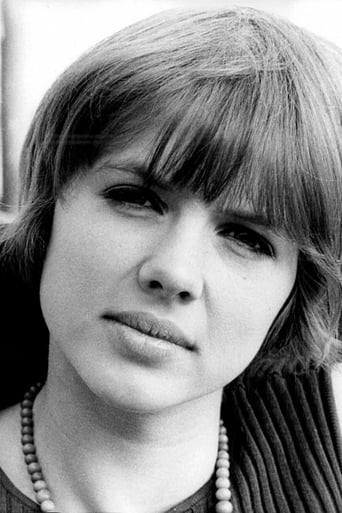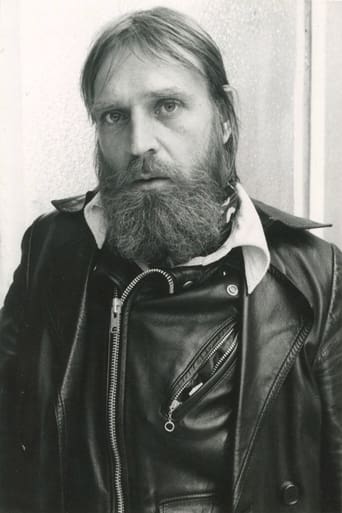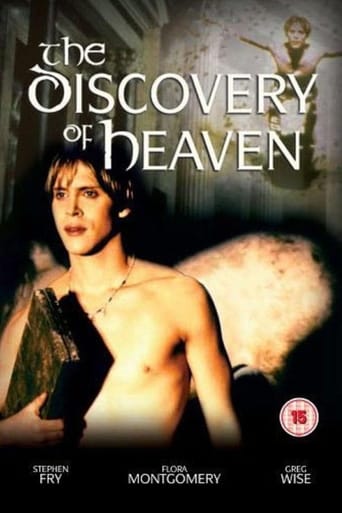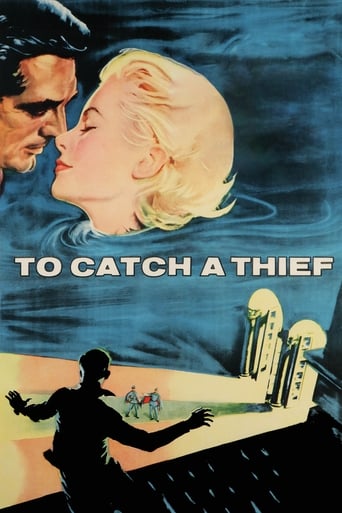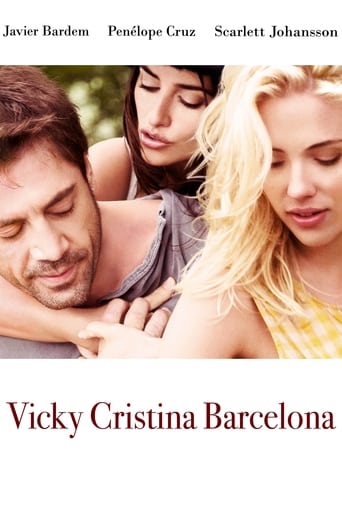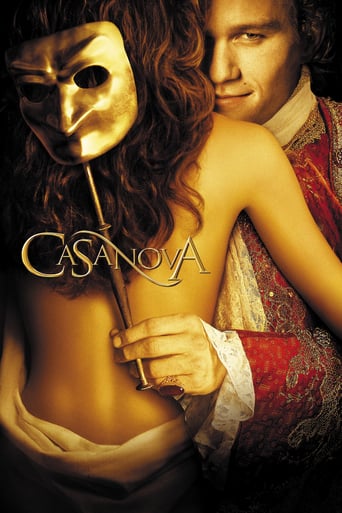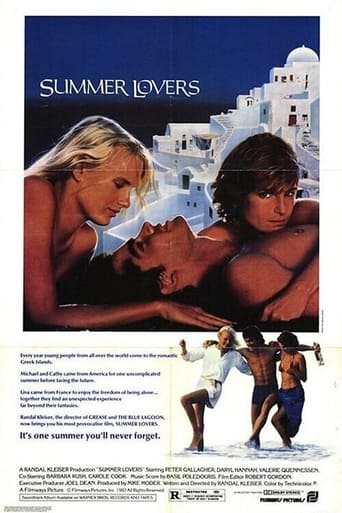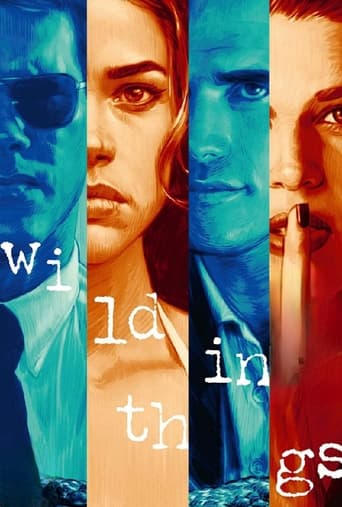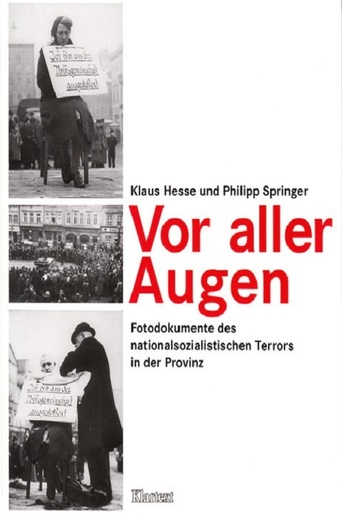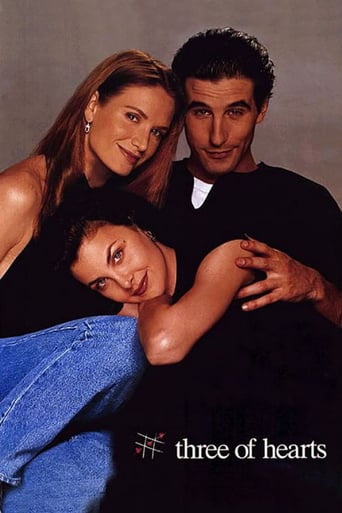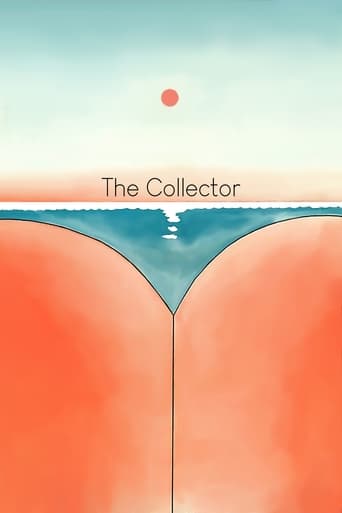
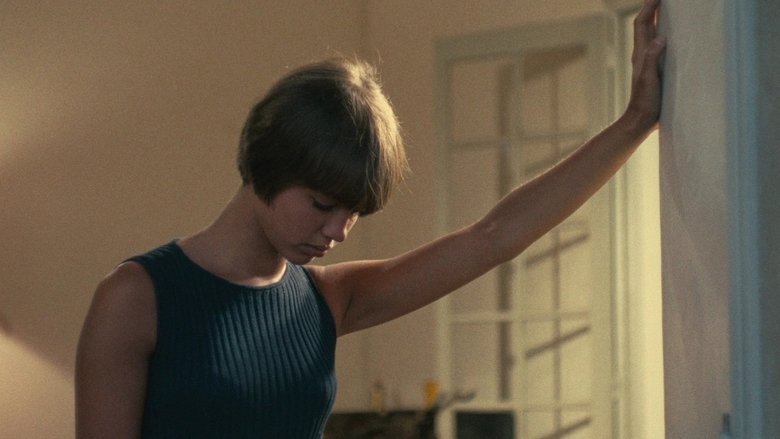
La Collectionneuse (1967)
A bombastic, womanizing art dealer and his painter friend go to a seventeenth-century villa on the Riviera for a relaxing summer getaway. But their idyll is disturbed by the presence of the bohemian Haydée, accused of being a “collector” of men.
Watch Trailer
Cast


Similar titles
Reviews
Adrien, the narrator and main character of La Collectionneuse, vacations at a house of a friend and patron in the south of France. He is planning to open an art gallery after years of supporting himself in a murkily defined role in the art scene, based on his connections, his personal charms, and his scheming. He is separated, perhaps permanently, from his girlfriend, a polished model beaming with positivity who doesn't take him altogether seriously. While on vacation, he shares the house with Daniel, an awkward, intense avant-garde artist with a hatred of mediocre society, and a pretty, inarticulate young drifter, Haydee. Adrien wants to center himself in a feeling of solitude in preparation for his gallery opening, but instead becomes increasingly obsessed with Haydee, who is not his type, but whose escapades with other men dent his ego. Neither Adrien nor Daniel find it acceptable to be just another in a long line of mostly mediocre men that the somewhat generic and vague Haydee finds only okay, yet they don't want to be left out either.The tropical location and good looking leads of the film provide eye candy, but the overall message of the film is sour and bleak. However this is a bleakness and sourness that is enjoyable, revealing a psychological terrain that is realistic rather than filmic. None of the relationships pictured are profound but overall are driven by a need to score points over others or a involuntary desire for acceptance and gratification. Reunion with his girlfriend in London is less a moral triumph of true love, and more a desire for a more satisfactory ego prop.Most striking is the anti-romance at the heart of the film. Adrien and Haydee are not dissimilar, both of them bohemian outsiders who don't take well to conformity and the 9-to-5 life, both of whom get by on their personal charm and willingness to ingratiate themselves with the more stable. However, far from finding true love together, they never really connect. Haydee's attention drifts from man to man, and Adrien is caught up in posturing to prove that he is "someone". The simple, childlike Haydee with her lack of ambitions and pretenses is not good enough for him in his mind, while to her, he is perverse and feels superior for no reason.Two of the best moments in the film are the beginning and the end. In the beginning we are presented with Haydee. She is beautiful, young, healthy, walking on a beautiful beach. It is a perfect picture. Only, she is walking back and forth, to nowhere in particular, her face is rather plain, her haircut silly, her expression vague and dissatisfied. She's desirable but there's nothing especially "impressive" about her, hence the dissatisfaction to haunt the protagonist. Then at the end, the protagonist finds himself alone in paradise, freed from bickering. Far from being peaceful, there is a sense it is depressing. One longs to return to the happier days of unhappiness, just as Haydee expressed in her simple and seemingly stupid fashion earlier in the movie, and like the narrator is forced to admit in the end.This is one of my favorite of the Moral Tales, feeling less talky and ultimately moralizing than most. It's a somewhat "small" film, ultimately about one man's imperfect character and his squabbles with a few others. Nothing much happens and the point seems to take the cheap shot of snarking on the egotist male protagonist. However, still, it's a movie well worth seeing and enjoyable.
It's amazing how diabolical those people sound when they declare that the ovens are the only place for those lacking beauty-completely ignoring the variety of good human attributes. This is the trap that many architects,artists, and designers get stuck in the search for beauty. The film is interesting despite my hate for it's characters because of it's exploration of the ideas of beauty and perception,it also was filmed in a gorgeous old mansion in the country. 1967 was an interesting year in film :Week End,Oedipus Rex,The Graduate,2 or 3 Things I Know About Her,Point Blank,Belle Du Jour,Bonnie and Clyde, Dirty Dozen, this one is worth checking out in addition to those others.
Prologue 1: A flat-chested French actress walks along a beach. She turns around and walks in the other direction. Art.Prologue 2: Two French pseudo-intellectuals, with mail-order Philosophy degrees, engage in a discussion about a coffee mug with razor-blades glued to it. The deep thinker on the right suggests it means something. The other deep thinker agrees. Nothing gets the blood of two 60s New Wave hobby-thinkers boiling like a cup with razorblades clumsily attached to it. Art.Two friends, Adrien and Daniel (the cup gluer), are resting on the French Riviera. They have decided not to do anything, be idle for a while. And when two New Wave French cinema deep thinkers are on vacation you just know it won't be long before they do two things: 1) exchange philosophical musings about the world, and 2) share a woman. Which brings us to the to-and-fro beach-walking floozy from Prologue 1, Haydee. She and another man, lover no.23,783, join Daniel and Adrien. The gal and her loveur hurl pebbles at a group of chickens. Adrien is not amused, but his curiosity is tickled. Art. The narrator initially wants nothing to do with this chicken-hating harlot; he finds her too base even for his amoral, hedonistic ways (he claims to have high morals in the dating arena, but we know better than to believe him). Haydee has the voice of an 11 year-old boy and just as much below the neck: i.e. you can certainly understand why art-loving men fall for her in their thousands. To be fair, she has a very cute face i.e. not at all boyish – which might just explain why she isn't an instant object of desire for Daniel and Adrien.Nonetheless, our monotone-voiced narrator soon starts to rationalize the growing number of Haydee-induced erections in his pants by deceiving himself that his growing interest in her is because "she isn't empty- headed like the others". Art.How he reaches the rather suspicious conclusion that her IQ is higher than a chimp's, I do not know. Her sentences rarely contain more than 3 words. But I guess when you do nothing all day but read Rousseau your judgment tends to get a little clouded. French philosophers will do that to you Soon we find out what German Romantics do to the floozy. Rather unconvincingly, she holds a book called "Les Romantiques Allemandes", in spite of the fact that even the average episode of "Asterix the Gaul" must be far too demanding for her. That very day, as if wanting to release her from the boredom of having to spend the whole evening pretending to read a philosophy book, Adrien suggests a night out. Soon he makes his moves, but she plays hard to get. She runs away (sobbingly? laughingly? the editor decided not to make her weird grunts comprehensible to the viewer) straight into the hands of Daniel, with whom she had a brief fling a few days earlier. The two embrace passionately – in spite of the fact that Daniel and Haydee were supposed to be not on good terms. Don't ask me what the hell is going on. I'm just the viewer. Needless to say: art.Next up is a brief scene in which Adrien shows a 10th-century vase to Haydee. He turns it around so the cameraman can capture its other side too (which looks pretty much the same), and then he flips the vase back to its original position. I'm just glad this wasn't a 15-minute scene. Art. Later, grumpy Daniel (vaguely resembling David Warner), bangs his right foot against the living-room floor, over and over, like a semi-catatonic lunatic. Haydee dares complain about the annoying noise. Daniel reacts to her with a vicious yet pointless diatribe about beauty and ugliness. Being unusually homely himself, I'm a little surprised that he'd even dare touch the subject. He also mentions the Sun briefly, making some New-Waveian analogy not worth repeating here. Summa sumarum: this entire venomous anti-Haydee tirade occurs just because she rightfully complained about his childish behavior. Daniel should be glad that a cutie like Haydee ever even looked at him – let alone actually agreed to bed him.Breaking the bliss of this slightly idle trio is an art collector, Sam. He sounds like Darth Vader, and throws in a few exciting comments about the much-touted elephant-based ancient vase. Daniel shows up, and true to his fickle 60s New Wave temperament, starts berating Sam for being an art collector. The rant is mercifully short though, and the message is as simple as it is moronic and pointless: "I hate art collectors, so I refuse to kiss your behind." Was Daniel molested as a child by a similar kind of baritone-voiced art collector, or is he merely as dumb as a doorknob? Later, Sam decides to berate Adrien for his sloth, while the latter defends himself by trying to rationalize his layabout existence as some form of "higher existence": a typical language-rapist, in the best New Wave tradition.In the end, we find out that these 80 minutes of New Wave French cinema were about Adrien's attempts to start feeling "independent". Hallelujah.Rohmer once said that he focused on the "cinema of thoughts rather than actions". So why didn't he just publish books then? Cinema happens to be largely a visual medium. Perhaps someone forgot to tell him But next to Godard he must be a genius.Still, LC is a watchable flick, some of the dialog being fairly interesting. On the other hand, I'm not one of those Tabula Rasa viewers who are easily impressed by any thought or conversation deeper than a pub discussion about a Premier League draw. It takes more than coffee- table philosophers to get my adrenaline going
In The Collector, the first feature-length film of the Six Moral Tales series, mind-games, strategies, and overt manipulation thwart the possibility of satisfying relationships. The 54-minute film is beautifully photographed and has an elegance, charm, and wit that bears favorable comparison with his more acclaimed works. Adrien (Patrick Bauchau), an art dealer, and Daniel (Daniel Pommereulle), a painter spend the summer in a house on the French Riviera. Also vacationing there is Haydee (Haydee Politoff), an elegant but rather aloof young woman who sleeps with many boys in the area and has earned the title of "collectionneuse", a collector of men. Adrien, smug and self-centered in a charming sort of way, is interested in Haydee but tells himself that her promiscuity is a trick for him to seduce her and he refuses.The summer turns into a love triangle with Adrien convincing Daniel to pursue Haydee to ease the pressure of his own conflict between his rationalizing intellect and his passions. In the moral scheme of things, Haydee may represent the sexual revolution of the 60s and Adrien that of traditional morality, yet the film takes no sides, presenting the issues without judging the characters and giving us much to think about. The Collector is perhaps the most philosophical of the six but in the end the pursuit without passion leads to a feeling of emptiness and missed opportunities. Like most of Rohmer's films, there are no peak dramatic moments or confrontations, just everyday life elevated into art.



